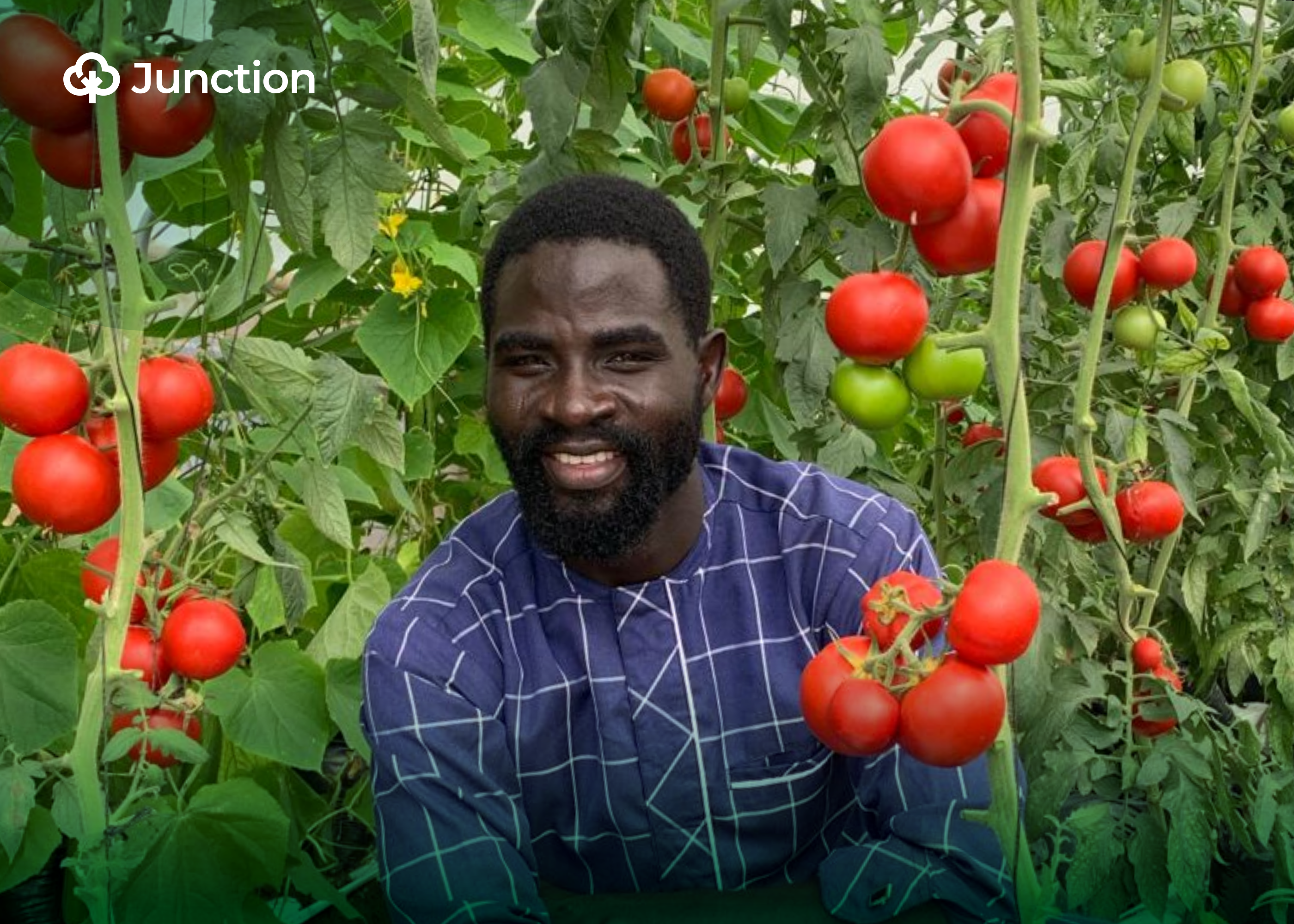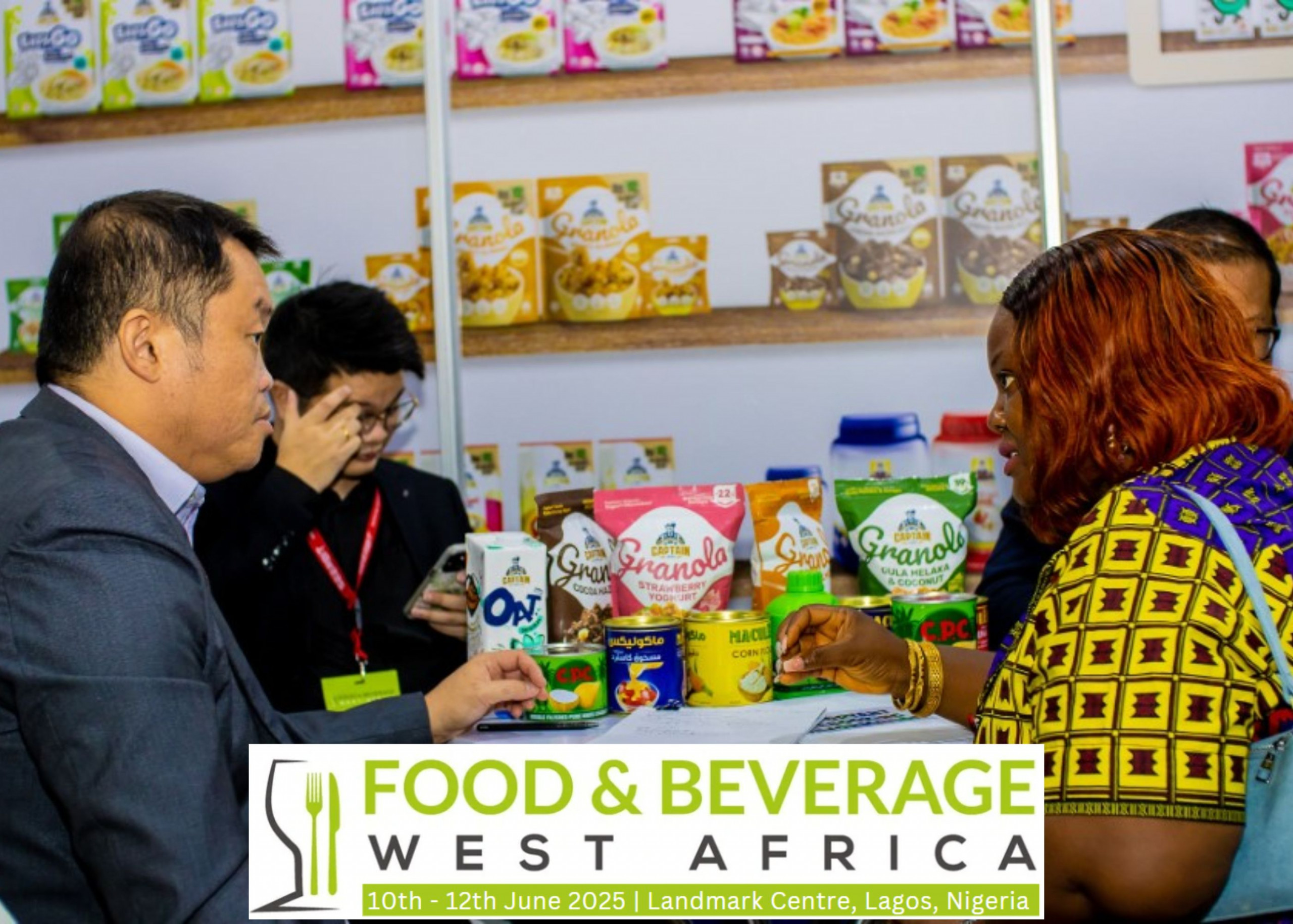Nigeria’s agricultural potential is immense, but its realisation hinges on the active involvement of young people. Backed by a recent survey, many young people see the sector’s potential but lament the problems that discourage them from pursuing a career in agriculture.
Read the story of Azeez Ejitola, a successful agricultural entrepreneur and former International Institute of Tropical Agriculture (IITA) employee. How he went from having no interest in agriculture and eventually becoming one of those shaping the future of Nigeria’s food security.
Early beginnings and role at IITA
Ejitola’s story begins at the IITA station in Ibadan, where he worked as a caddie boy on the institute’s golf course to make ends meet. One day, while returning balls to the cart, he met someone who inspired him to return to school to further his education.
“I remember what he said to me, ‘even if someone wants to help you, you can’t get a meaningful work without education’. So I applied to the University of Ibadan and was admitted to study mathematics,” he recalls.
Upon graduation, he was posted to Kano State to serve at the IITA station there. However, his contract was not renewed at the end of the year, necessitating his return to Ibadan.
Leveraging his familiarity with the institute’s programs, he seized an opportunity to join the Business Incubation Platform (BIP) department as a project manager.
At the time, his role involved overseeing the Monsanto DK9 maize cultivation project, where he achieved a remarkable six-ton-per-hectare yield—an exceptional feat even within the institute. Recognising his accomplishment, he was promoted to greenhouse manager following the previous manager’s departure and received a substantial salary increase ranging from ₦250,000 to ₦500,000 naira over time.
His responsibilities included overseeing the planting and nurturing of diverse crops like habanero peppers, bell peppers, cucumbers and other vegetables, ensuring that they met the rigorous standards required for experimental studies.
Ejitola contributed to seed research and development during his time at the institute. He was instrumental in the cultivation and management of seedlings, which are vital to the success of many agricultural experiments. His meticulous attention to detail ensured that the seedlings used in IITA’s research projects were of the highest quality, contributing significantly to the institute’s successes.
Impact and innovations in greenhouse management
His expertise in greenhouse management was not just about maintaining the status quo; he actively sought to innovate and improve the processes under his care.
Azeez Ejitola recalled that he implemented new techniques and strategies to optimise plant growth, disease management, and overall greenhouse efficiency. Under his supervision, 3.5 kilograms (kg) per plant of habanero pepper and 9 kg per stand of vegetables were harvested from the IITA-BIP and Rijk Zwaan vegetable production project. His innovations not only improved the productivity of the greenhouse but also set new benchmarks in research quality at IITA.
His efforts were integral to the institution’s success in developing new agricultural techniques and crop varieties. By implementing innovative greenhouse management practices he had tested on his garden at home, he significantly improved the efficiency and productivity of the research environment. For instance, he introduced advanced pest control methods and optimised nutrient delivery systems, leading to more robust and healthier plants.
Overcoming challenges
During his time as a project manager, Ejitola revealed that he encountered some challenges like identifying the appropriate season for crops he supervised, identifying seed/crop varieties and the best to go for, navigating technical management, plant nutrition, and soil management. These challenges were solved mainly by research and testing which he used in his garden at home for practice.
“Before planting, farmers need to carry out a soil feasibility test to know what kind of soil they want to farm on. They need to know if it is appropriate for the crops they intend to cultivate and if it lacks any nutrients,” he explains.
According to him, many farmers do not bother to do a thorough soil suitability test and when their crop begin to suffer, they just suffocate the soil with fertiliser. There are different types of fertilisers, providing different ratios of nutrients. Farmers who do not conduct soil suitability test do not know what fertilisers their farms need and therefore suffer loss.
On the subject of seed buying, he acknowledged that finding the right seeds is a challenge and many farmers go for the cheap seeds in order to save costs. “The issue is that some of these ‘cheap’ seeds are not seeds but grains! Farmers should find reputable agrobusinesses specialised in seeds/seedlings,” he advised
“Overtime, I discovered that DK29 from Mozanto was good and I have always gone to them. I have not been disappointed till date. Cheap things are often not the best,” Ejitola advised
Transition to independent projects and future aspirations
After his impactful tenure at IITA, Azeez Ejitola worked for a few other agribusinesses before transitioning to focus on independent agricultural projects. This new phase of his career is marked by a shift towards more personalised and community-driven agricultural initiatives
He has since founded Grow2gether Agriculture Limited with the goal to apply all he has learned to support local farmers and drive sustainable practices. He also plans to focus on mentoring young professionals and sharing his expertise through workshops and educational programs. His future projects include developing new training modules and community outreach programs aimed at improving agricultural practices across Nigeria.
“I want to help shape the future of agriculture by empowering the next generation of agronomists and farmers,” Ejitola says. His vision is not just about advancing agricultural practices but also about fostering a culture of continuous learning and innovation.
Ejitola’s journey from a caddie to the CEO of his own agribusiness is a testament to agriculture’s profitability. His story inspires aspiring entrepreneurs to consider this sector. As a figure of inspiration in Nigerian agriculture, Ejitola continues to make a significant impact. His participation in Farmers’ Field Day Exhibition, Ibadan, where he shared his insights, reinforces the notion that farming is a lucrative venture. Ejitola embodies the qualities of dedication, innovation, and a steadfast commitment to agricultural progress.




Together we can reshape the world and make it a better place for everyone to live. Agriculture is the only way of reducing hunger and food security.
#letgrow2gether